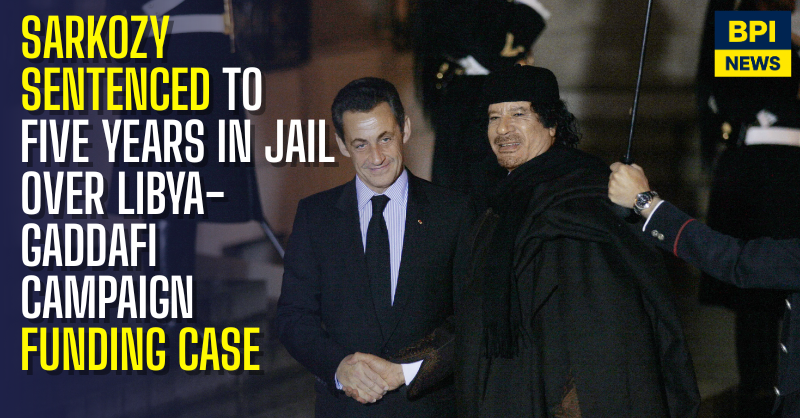Former French president Nicolas Sarkozy has been sentenced to five years in prison after being found guilty of criminal conspiracy in a landmark trial linking him to alleged campaign funding from Muammar Gaddafi’s regime.
The Paris court ruled that Sarkozy, alongside members of his inner circle, conspired to receive illicit funds from Libya to bankroll his successful 2007 presidential campaign. Prosecutors alleged that millions of euros were channelled through secret meetings between Sarkozy’s team and Libyan officials in 2005, when he was still interior minister.
Although Sarkozy was acquitted of three charges including passive corruption and illegal campaign financing the conviction for criminal conspiracy carries a severe penalty. He is expected to immediately appeal, which will suspend the sentence until a higher court rules.
According to prosecutors, Libya’s leadership demanded diplomatic, legal, and business favours in return for the funding, hoping Sarkozy would help rehabilitate Gaddafi’s pariah image on the international stage. Just months after winning the presidency, Sarkozy invited Gaddafi to Paris for a full state visit in December 2007. The Libyan leader famously pitched his Bedouin tent in gardens near the Élysée Palace, marking his first formal reception by a Western leader since the 1980s.
But by 2011, relations had shifted. Sarkozy placed France at the forefront of NATO-led airstrikes against Gaddafi’s forces, helping rebel fighters to topple the Libyan regime. Gaddafi was later captured and killed in October 2011.
The trial heard testimony from witnesses, examined extensive financial records, and reviewed allegations that Sarkozy’s entourage sought illicit funds from Tripoli. Members of his team were accused of facilitating contacts with Libyan officials, though Sarkozy himself consistently denied wrongdoing throughout the proceedings.
The case represents one of the most significant legal blows ever delivered to a former French head of state. Sarkozy has already faced two prior convictions for corruption and influence peddling, both of which he is also appealing.


